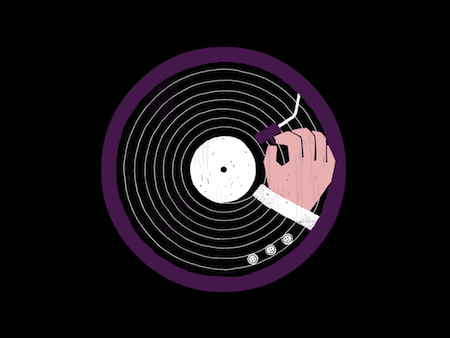
Sure, the majors have the funding to promote certain artists on a huge scale, but this only benefits the 0.1 % of musicians who they decide to invest in. The media uses Nicki Minaj, Wiz Khalifa, 2 Chainz, and Drake to reinforce the illusion of music superstardom (i.e. Drake’s “Started from the Bottom”), but the reality is much more harsh for the other 99.9 % of music makers. Being talented and dedicated to your craft simply isn’t enough to guarantee a million dollar contract nowadays. There’s just so much music being made and so many platforms to showcase your content on, that it’s extremely difficult to break through the noise and get heard in the digital arena. That’s where the majors have still been effective. They can make sure their artists are on regular rotation on the radio and TV so that people won’t forget about them.
So where does this leave all the talented artists who have taken the independent route? The bright side: The Internet and all its services and networks allow independent artists to connect directly with an audience. The dark side: The lack of barriers to entry on the Internet means that talented artists must compete with an abundance of untalented artists in order to find and establish their audience.*
We are all in the midst of a transitional period in the recording industry. Historically the industry has been characterized by a top-down structure, where the major record company executives have essentially dictated which types of artists and which types of music would be heard. This current period of transition (the Digital Revolution) has dismantled the traditional production-distribution-exchange-consumption model that has constituted the top-down structure. Each of the four aspects have been undermined by developments in technology, be it file-sharing networks, streaming services, or audio recording softwares. This transition has been going on for so long (about 15 years) because the big record companies, whose business has relied on selling physical copies of music, have felt threatened by the digital formats and have done everything in their power to resist the Digital Revolution. The result is the messy situation we have today, where music listeners have a multitude of ways to get their fix for music, both legally and illegally. So when will this transition period be over? When the time comes, music listeners and the technologies that allow them to enjoy music more conveniently will prevail. That’s how markets tend to work. However, we can’t forget about the actual artistic creators.
Musicians are the most important part of the whole system, despite how they’ve been treated by major labels. The demise of the top-down system will only be replaced by a bottom-up structure. The best chance we have at a healthy music ecosystem in the U.S. is if talented artists can be properly recognized by the public, and fairly compensated for their contributions. History has shown that cultural expression is vital for the well-being of society, so the representation of culture should be authentic. We shouldn’t have label executives telling artists what kind of music to make, especially when those executives are financial experts and not music connoisseurs. Musicians must be free to create from the soul. No one else should be telling them what to feel and think. And if there’s an audience that genuinely appreciates their music and supports their agenda, then I bet they can figure out a reasonable way to exchange money for the content. This is the nature of the bottom-up system. It’s like a meritocracy. Artist and audience have a direct relationship where high-quality and meaningful music is directly rewarded by consumer dollars. Both parties share a mutual responsibility: artists must be honest and insightful; audience must understand that the artist is dependent on their support.
There’s no certainty when this bottom-up system will effectively overcome the traditional top-down model, as the majors still dominate the commercial music market. However if this new model can be proven sustainable on a consistent basis, I’m sure it will be established as the industry standard.
* Side note: One of the main contributors to the chaos in the music industry and the devaluation of the recording in general is that so many people try to “make it” in music following the major labels. Independent artists (especially in hip-hop) need to look beyond the ideas of “what sells,” constructed by the majors and their media outlets. Just because we see ignorant rappers on TV bragging about violence, jewelry and bitches doesn’t mean that’s the only way to get people to listen to your music. Most people who don’t know about true hip-hop just assume all the negative stereotypes they see in the mainstream. Rappers who try to make it by perpetuating the stereotypes are only distracting the public from rappers who actually carry a message through their lyrics. The reality is that most people realize mainstream rap, though entertaining, is mostly nonsense. As a result, they’ve stopped paying for it. To get people to care enough about the music to pay, independent artists need to focus on restoring the value of the music, which starts with it being meaningful.
By Lenny W.

